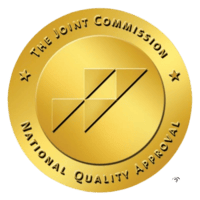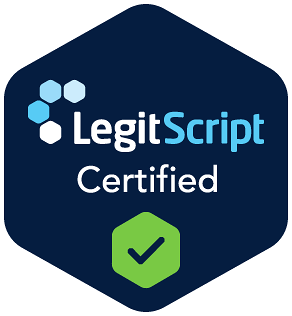Understanding Holistic Treatment
A growing number of addiction treatment programs are embracing holistic approaches, recognizing that effective recovery extends beyond addressing the physical aspects of substance dependence. These programs prioritize emotional healing and spiritual growth, nurturing personal empowerment vital for sustained recovery. By integrating trauma recovery into treatment plans, individuals can confront underlying issues that contribute to their addiction, promoting self-awareness and facilitating lifestyle changes that support long-term wellness.
Holistic treatment often incorporates alternative therapies such as art, music, and nature-based practices, which serve as powerful tools for expression and connection. These approaches not only improve coping strategies but also strengthen resilience building, helping individuals navigate the challenges of recovery with greater strength and adaptability. Holistic education plays a pivotal role in equipping patients with knowledge about their emotions, triggers, and the importance of self-care.
Mindfulness and Meditation
Mindfulness and meditation have emerged as transformative tools in addiction treatment, offering individuals a pathway to reconnect with their inner selves. Patients can gain invaluable insights into their thoughts and behaviors by cultivating present-moment awareness through various practices and techniques. The profound benefits of meditation are that it improves emotional regulation and promotes a sense of peace that can significantly aid recovery.
Practicing mindfulness offers individuals struggling with addiction a transformative pathway to self-awareness and emotional regulation. Central to this practice are breathing exercises and visualization, both of which can serve as powerful tools in the recovery process. Breathing exercises help ground individuals in the present moment, allowing them to detach from the overwhelming urges associated with addiction.
Benefits of Meditation
Though the paths to recovery may differ, the benefits of meditation stand out as a universally applicable tool for those struggling with addiction. By cultivating mindfulness and self-awareness, individuals can uncover profound emotional balance and mental clarity, crucial for steering through the tumultuous recovery journey. The transformative power of meditation encompasses several vital benefits:
Stress Reduction: Regular practice significantly lowers cortisol levels, promoting a sense of calm and reducing the triggers that lead to relapse.
Anxiety Relief: Meditation nurtures inner peace, helping to alleviate anxiety and the overwhelming thoughts that often accompany addiction.
Focus Improvement: By sharpening concentration, meditation encourages resilience building and supports spiritual growth, enabling individuals to remain grounded in their recovery journey. Incorporating meditation into addiction treatment not only offers immediate relief but also lays the groundwork for long-term change.
Nutritional Therapy
Nutritional therapy emerges as a vital component in the multifaceted approach to addiction treatment, underscoring the profound connection between diet and mental health. As individuals navigate the complexities of recovery, addressing nutritional deficiencies becomes paramount. A well-rounded strategy often includes dietary supplements and healing foods that boost well-being. Holistic nutrition views food as medicine, emphasizing the role of therapeutic diets in restoring balance and promoting gut health. The human gut, often called the “second brain,” plays a pivotal role in regulating mood and emotional states, making it imperative to prioritize meal planning that nurtures a healthy microbiome.
By focusing on nutrient-dense foods, individuals can mitigate the effects of addiction-related stress and improve their resilience. Furthermore, the intentional selection of ingredients can help detoxify and reduce cravings, creating a sustainable path toward recovery. Nutritional therapy supports physical health and cultivates mental clarity and emotional stability. By integrating these principles into addiction treatment, we can ultimately empower individuals to reclaim their lives, one nourishing meal at a time.
Art and Music Therapy
Art and music therapy represent powerful modalities in the domain of addiction treatment, offering individuals creative avenues for expression and healing. These therapies facilitate emotional release and self-discovery, empowering participants to explore their inner environments through art expression and music healing. By engaging in therapeutic sessions, individuals can find solace and strength in creative outlets that resonate with their experiences.
Visual arts: Participants engage in art workshops, utilizing diverse materials to communicate feelings and narratives that are often too complex for words.
Sound therapy: Music healing sessions incorporate rhythmic movement, allowing clients to connect with their emotions, promote relaxation, and nurture a sense of community. Collaborative projects: Group activities encourage social interaction and build trust and support among participants as they share their journeys. Through the integration of art and music, addiction treatment transcends traditional methods, cultivating a holistic approach that addresses emotional and psychological needs.
Equine-Assisted Therapy
Equine-assisted therapy emerges as a transformative approach in addiction treatment. It harnesses the unique bond between humans and horses to promote healing and personal growth. This innovative method, often referred to as horse therapy, facilitates emotional healing by enabling individuals to build connections through interactions with these majestic animals. Participants learn to develop trust with the horses and within themselves, nurturing an environment ripe for self-discovery. As they navigate the nuances of horse behavior, clients can experience profound behavioral change, often illuminating underlying trauma and encouraging trauma processing.
The experiential learning inherent in this therapy allows individuals to step outside traditional therapeutic boundaries. Equine-assisted therapy also serves as a crucial component of comprehensive support systems, offering a unique avenue for individuals to confront their struggles and cultivate resilience. Through this form of therapy, the robust relationship formed with horses becomes a catalyst for healing, encouraging individuals to initiate a journey of enriching and transformative recovery. In this way, equine-assisted therapy stands at the forefront of holistic addiction treatment approaches.
Yoga and Movement Practices
Yoga and movement practices have emerged as powerful adjuncts in the domain of addiction treatment, offering individuals a path to reconnect with their bodies and minds. These practices not only promote physical wellness but also facilitate profound emotional and psychological healing. By integrating breathwork techniques and somatic healing, participants can cultivate awareness, release pent-up tensions, and develop healthier coping strategies. Key benefits of yoga and movement practices in addiction treatment include:
Enhanced Mindfulness: Individuals learn to be present, reducing anxiety and cravings.
Increased Physical Awareness: They develop a deeper connection to their bodies, promoting self-acceptance and reducing shame.
Stress Reduction: Movement and breathwork techniques help to lower cortisol levels, alleviate stress, and promote emotional balance. As individuals engage in these practices, they often experience a transformative journey that empowers them to reclaim their lives. The rhythmic flow of movement, coupled with intentional breath, acts as a catalyst for somatic healing, allowing individuals to process trauma and build resilience.
Supportive Community Engagement
The journey of recovery is profoundly influenced by the social environments and networks individuals engage with, making supportive community engagement a significant component of addiction treatment. Engaging with peer support groups nurtures meaningful social connections, reinforcing the notion that recovery is not a solitary endeavor. These networks provide a safety net, allowing individuals to share experiences, wisdom, and encouragement, which can be transformative. Community outreach initiatives serve as important conduits for connection, linking individuals to local resources that can aid their recovery.
By participating in volunteer opportunities, individuals not only contribute positively to their communities but also build relationships that bolster their support networks. Group activities, whether they involve recreational pursuits or skill-building workshops, encourage collaboration and camaraderie, fundamental elements in combating the isolation often associated with addiction. Furthermore, relationship building is critical; the bonds formed during recovery can instill a sense of belonging and accountability. As individuals engage with supportive communities, they cultivate resilience and hope, ultimately enhancing their chances of sustained recovery.
Integrating Traditional and Holistic Methods
The integration of traditional and holistic methods in addiction treatment invites a transformative understanding of the mind-body connection, emphasizing how mental and physical health are intricately linked. By incorporating nutritional support strategies, practitioners not only address the biochemical imbalances often exacerbated by substance use but also empower individuals to reclaim their well-being. This multifaceted approach challenges conventional paradigms, urging us to contemplate the whole person in the journey toward recovery.
A profound understanding of the mind-body connection reveals the intricate interplay between psychological states and physical health, particularly in the domain of addiction treatment. This connection serves as a pivotal framework for integrating traditional methods with holistic practices, allowing individuals to cultivate emotional resilience and promote trauma healing. By embracing self-awareness practices, clients can explore their behavioral patterns and recognize the underlying triggers of their addiction.

Final Thoughts
Holistic approaches to addiction treatment represent a transformation that recognizes the intricate interplay of mind, body, and spirit. These methods cultivate emotional resilience and facilitate more profound healing by embracing diverse modalities such as mindfulness, nutritional therapy, and creative expressions. The integration of community support further enriches recovery experiences, encouraging connections that reinforce accountability and growth. Ultimately, a comprehensive approach to addiction treatment not only addresses the symptoms but similarly nurtures the entire individual, paving the way for sustained recovery and empowerment.
At BlueCrest Detox, we’re dedicated to elevating you from the struggles of substance use to the peaks of recovery and resilience. Our expert team offers personalized, evidence-based treatment services tailored to support your unique journey toward healing. Reach out to us for the compassionate care you deserve on your path to wellness. Follow us on Facebook for ongoing support, insights, and inspiration on your recovery journey.
Frequently Asked Questions
How Long Does Holistic Addiction Treatment Typically Last?
The duration of holistic addiction treatment varies significantly, influenced by factors such as individual progress, therapy types employed, and personal circumstances. Typically, programs may last from several weeks to several months, nurturing comprehensive recovery.
Are Holistic Methods Effective for All Types of Addiction?
Holistic methods can be effective for various addictions, emphasizing the mind-body connection and encouraging lifestyle changes. Nonetheless, individual responses vary; tailoring approaches to specific needs is essential for maximizing effectiveness and achieving lasting recovery.
What Qualifications Should Holistic Practitioners Have?
Holistic practitioners should possess relevant practitioner credentials and meet certification requirements, ensuring a comprehensive understanding of integrative therapies. This foundation nurtures practical treatment approaches, enhancing client trust and promoting successful outcomes in addiction recovery.
Can Holistic Approaches Be Used Alongside Medication?
Yes, holistic approaches can effectively complement medication. Integrative therapies and complementary techniques improve treatment outcomes by addressing emotional, psychological, and physical aspects of addiction, nurturing a comprehensive healing process that promotes long-term recovery and well-being.
How Can Family Members Support Someone in Holistic Treatment?
Family members can support someone in holistic treatment by offering emotional support and employing effective communication strategies. Engaging in open dialogues nurtures trust, whereas active listening demonstrates empathy, creating a nurturing environment vital for recovery.




